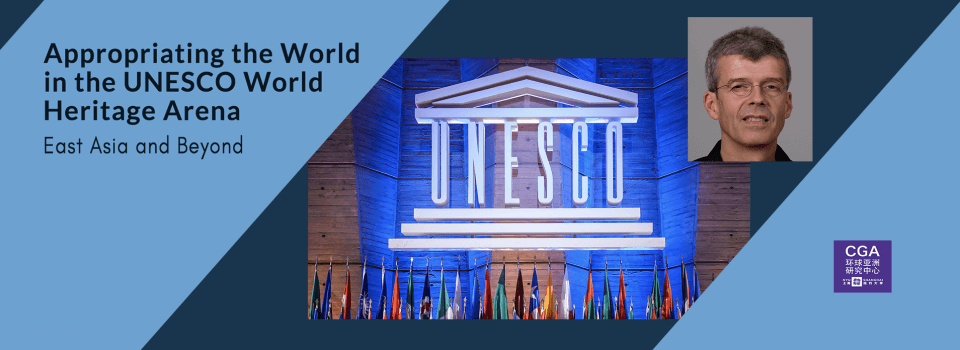CONTACT US
Email: shanghai.cga@nyu.edu
Phone Number: +86 (21) 20595043
WeChat: NYUShanghaiCGA
Address:
Room W822, 567 West Yangsi Road,
Pudong New Area, Shanghai, China

© 2024 All Rights Reserved

Venue: Room 1505, 1555 Century Avenue, NYU Shanghai
Date: Thursday, April 12, 2018
Time: 16:30 to 18:00 CST
The UNESCO World Heritage Convention of 1972 and its World Heritage List have developed into a major factor of contemporary “world-making”, that is producing the world in our minds. While born from the utopian idea that humanity’s most important sites belong to us all and call for joint conservation efforts, the luster of World Heritage titles has always been appropriated by more circumscribed constituencies – such as nation states, municipalities, corporations and even the militant groups deliberately attacking the sites – for their own purposes of boosting tourism, investments, pride, or global attention. Based on ethnographic fieldwork at World Heritage meetings from 2009 to 2015, the lecture will retrace the development of World Heritage, the reform efforts meant to expunge Eurocentrism, and the recent turn to more nation-centered decision-making. It will then zoom in on the East Asian countries and their specific ways of appropriating World Heritage. The diplomatic battle about the World Heritage listing of Japanese industrial sites with a history of Korean forced labor will demonstrate how World Heritage properties never cease to be national sites as well.
Christoph Brumann is Head of Research Group, Max Planck Institute for Social Anthropology. After studying Social Anthropology, Japanese Studies, and Chinese Studies, Brumann obtained his doctorate with a comparative study on the survival conditions of utopian communes (1997) and his habilitation degree with an ethnographic study of the conflicts about the townscape and public traditions of Kyoto (2005), all from the University of Cologne. There he also spent most of his research and teaching career before joining the MPI in 2009. He is committed to a methodologically grounded anthropology of modernity and has a special interest in cities, globalisation, and questions of cultural self-reflection and cultural display, as exemplified by the social uses of cultural heritage in contemporary societies and by Buddhist temples as economic and social institutions.
Introduction and moderation of the Q&A by Dr. Saskia Abrahms-Kavunenko, Global Perspectives on Society Teaching Fellow.
To our visitors:
• RSVP may be required for this event. Please check event details
• Visitors will need to present a photo ID at the entrance
• There is no public parking on campus
• Entrance only through the South Lobby (1555 Century Avenue)
• Taxi card
• Metro: Century Avenue Station, Metro Lines 2/4/6/9 Exit 6 in location B
• Bus: Century Avenue at Pudian Road, Bus Lines 169/987
Email: shanghai.cga@nyu.edu
Phone Number: +86 (21) 20595043
WeChat: NYUShanghaiCGA
Address:
Room W822, 567 West Yangsi Road,
Pudong New Area, Shanghai, China

© 2024 All Rights Reserved